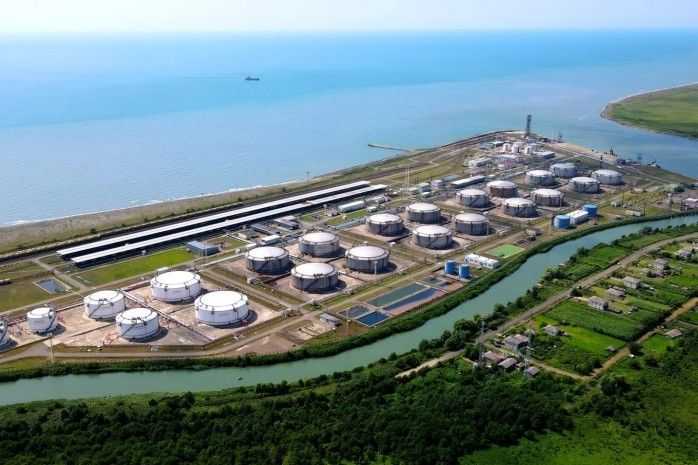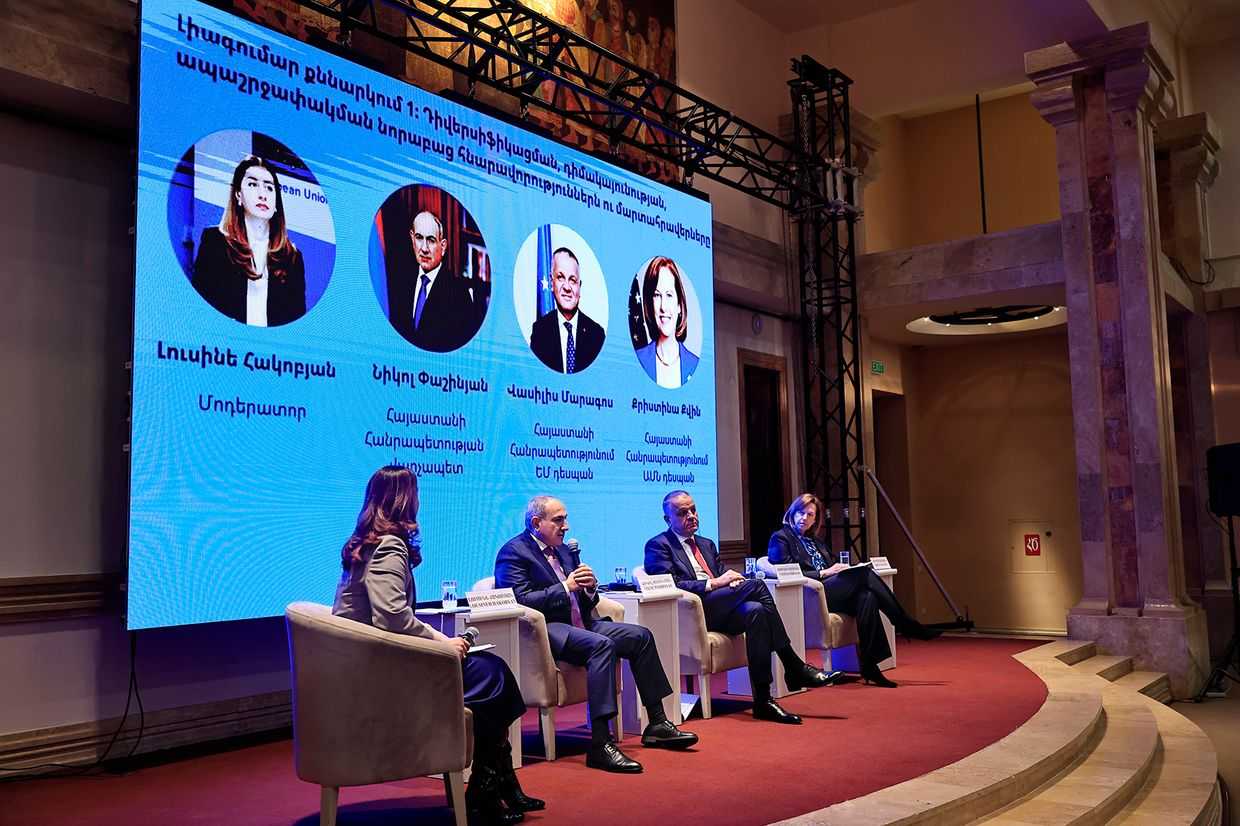
The NATO declaration adopted at a Washington summit does not reference Georgia’s path towards membership, as Georgia’s rift with the West continues to deepen.
In the declaration adopted on Wednesday, Georgia is mentioned only once, in a call on Russia to ‘withdraw all of its forces from the Republic of Moldova and Georgia, stationed there without their consent’.
The 2008 Bucharest and 2018 Brussels Summit Declaration stated that NATO ‘welcomes Ukraine’s and Georgia’s Euro-Atlantic aspirations for membership’ and that ‘these countries will become members of NATO’.
The 2008 declaration also stated that a Membership Action Plan (MAP) was ‘the next step for Ukraine and Georgia on their direct way to membership’.
The declaration made on Wednesday said that the Western Balkans and Black Sea regions were of strategic importance to the alliance, and that the alliance remained ‘strongly committed to their security and stability’.
Paragraph 28 of the declaration also stated that NATO member and summit countries were ready to support the security and defence capabilities of Moldova and Bosnia-Herzegovina and strengthen their capabilities against hybrid threats, but failed to mention Georgia in this context.
‘We reaffirm our commitment to NATO’s Open Door Policy, in line with Article 10 of the Washington Treaty’, the declaration read.
The North Atlantic Treaty’s Article 10 states that ‘by unanimous consent’ NATO members can invite ‘any other European state in a position to further the principles of this Treaty and to contribute to the security of the North Atlantic area’ to join the intergovernmental military alliance
Last year, the Vilnius Summit Communiqué stated that they ‘[reiterated] the decision made at the 2008 Bucharest Summit that Georgia will become a member of the Alliance with the Membership Action Plan (MAP) as an integral part of the process’, as did the 2021 Brussels Summit Communiqué.
The statement received a cold reception from Georgia’s ruling party, with MP Nino Tsilosani warning on Thursday that any statement should ‘not be provocative and contain minimal risks’.
She responded to opposition politicians’ calls for the 2008 declaration’s advocacy for Georgia’s NATO membership to be repeated, suggesting that the 2008 August War was related to that declaration.
‘[Regarding] the statement made at the NATO summit in 2008, it may not be confirmed, but according to many subsequent assessments, the war processes in Georgia in 2008 followed it’, said Tsilosani. ‘ Therefore, when opposition politicians […] draw a parallel to the NATO declaration of 2008, which resulted in escalation and war tensions […] it certainly cannot be underestimated.’
‘At this stage, NATO’s umbrella does not protect Georgia’, said Tsilosani. ‘Unlike NATO member states, we will always be more cautious in our statements, and we ask our partners to evaluate their approaches in light of this situation’.
‘A disaster for Georgia’
On Wednesday, Foreign Minister Ilia Darchiavishvili reiterated Georgia’s aspirations to join NATO, and stated that the summit’s main focus was Ukraine and support for Ukraine.
Defence Minister Irakli Chikovani on Thursday similarly reaffirmed Georgia’s constitutional commitment to joining NATO, but suggested that this would happen ‘in due time’. He also noted that the declaration referred to NATO’s expansion policy.
‘NATO notes that every state is free to make a decision regarding which alliance to join and therefore supports the open door policy, this is also mentioned’, said Chikovani. ‘I am one of those people who believe that NATO will expand and the statement that is in […] the Georgian constitution will be delivered on in time’.
However, opposition politicians suggested that the ruling Georgian Dream party, which has increasingly criticised and ignored the recommendations of Western partners, had halted Georgia’s prospects of NATO membership.
‘Due to [billionaire ruling party founder Bidzina ] Ivanishvili’s isolationist policy, which aims not at Georgia’s integration into the Euro-Atlantic structures, but at Georgia’s international isolation, today we see that the issue of Georgia’s membership in NATO has been removed’, UNM chair Tina Bokuchava said on Thursday.
Independent MP Teona Akubardia similarly suggested that Georgia’s move towards NATO membership had been halted, calling the summit’s outcomes ‘a complete disaster for Georgia’.
‘Georgian Dream has closed the 22-year open door policy with NATO’, said Akubardia. ‘All this stems from the adoption of the [foreign agent law], which the NATO Secretary General warned the Georgian Dream government about on several occasions.’
On Wednesday, German Ambassador to Georgia Peter Fischer said that due to the recent anti-Western decisions of the ruling Georgian Dream, Germany had decided to end any new financial commitments to Georgia. German MP Robin Wagener went on to suggest that ‘the road to Europe would be closed’ for Georgia if the foreign agent law remained in place, and that aid projects would be reviewed.
On Tuesday, EU Ambassador Paweł Herczyński stated that the EU had suspended €30 million ($32 million) in military aid allocated to Georgia as part of its response to the Georgian government’s passage of the controversial foreign agent law and subsequent crackdown on human rights.
[Read more: EU suspends €30 million in defence aid to Georgia]
On 8 July, the US Defence Department announced it was ‘indefinitely postponing’ its annual Noble Partner joint military exercises with Georgia, as part of a ‘comprehensive review of the United States–Georgia bilateral relationship’.









